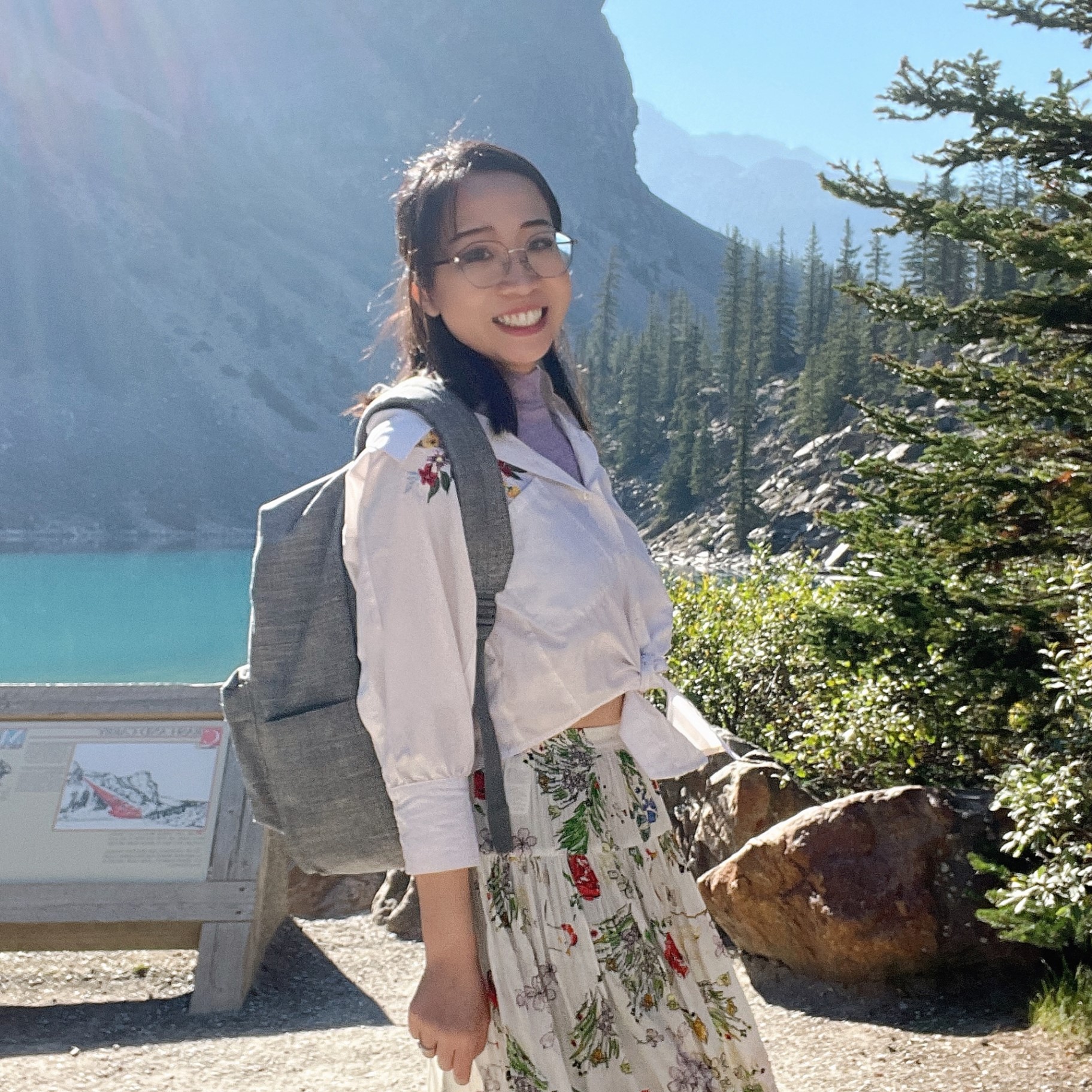Convocation spotlight: Youran Lin MSc/PhD Speech-Language Pathology
Sasha Roeder Mah - 21 November 2023

Youran Lin
When Youran Lin first arrived in Edmonton from Harbin, China to pursue her combined MScSLP/PhD in the Faculty of Rehabilitation Medicine, she was concerned about the challenges that might come with speaking English as a second language. But all these years later, she has come to recognize that her bilingualism has been a gift all along — not just personally, but in terms of her career as well.
What drew you to this area of study?
Curiosity about how linguistic knowledge and research can be used to help people.
What achievement are you most proud of from your graduate studies?
I received the 2019 Vanier Canada Graduate Scholarship, as an international student and was the first recipient ever from the Faculty of Rehabilitation Medicine!
What was the biggest challenge you had to overcome?
For a while, I was the only international student and combined student in my department. Such intersectionality made it sometimes challenging to navigate the systems and stay connected with fellow students in both programs.
How did you stay motivated throughout your degree?
My supervisor, Dr. Karen Pollock, helped me a lot with gaining confidence, maintaining mental health, navigating the program, and developing academic and personal skills. The instructors and students in our faculty were very supportive by including me in activities and accommodating my altered schedules. The staff were incredibly helpful by answering thousands of my questions and always being willing to find a solution together. With such support, the "challenges" never became real barriers, but instead were opportunities for me to understand the system and advocate for myself and my future peers. Now I'm very excited to see that there is an increasing number of international students attending or applying for the program.
What would you tell others who are interested in pursuing this academic path?
The combined program is intense and requires strong motivation and self-management skills. But because of this, expect to experience a LOT of professional, academic, and personal growth! Be proactive, be communicative, stay connected, ask for help, think about your future career plans early, and remember to take care of yourselves!
What have you learned about yourself during your time at the U of A?
Being a second language speaker is not (always) a barrier, but an asset! Now that I reflect on it, as a researcher who studies bilingualism, I'm almost surprised that I didn't know this from the beginning! When I first arrived, I was very worried about English. Even though I took a lot of effort to improve my English, I still felt anxious about my communication. However, I realized that I could relate to my clients' perspectives about language difficulties in clinical practice. I became more mindful with clear and audience-friendly communication in both clinical and academic work, and I tried to raise awareness of linguistic diversity in the field. I am really grateful to the people who validated my concerns and helped me empower myself. Going forward, I'll keep teaching and researching bilingualism and encouraging my peers with similar language backgrounds to contribute to the field.
What comes next in your career?
I am currently a postdoctoral fellow at the Bilingual Acquisition Lab of Alberta, supervised by Dr. Johanne Paradis. Our research is about bilingual children with special education needs, especially speech, language, and communication difficulties. In the future, I hope to become a researcher whose studies can provide strong clinical and educational implications, especially for linguistically diverse populations.